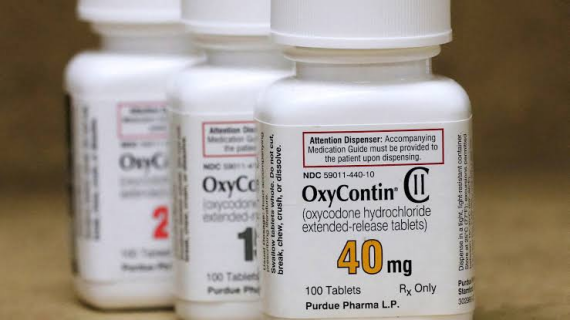
US Supreme Court Stops $6 Billion Purdue Pharma Bankruptcy Settlement, Affecting Global Opioid Crisis
By Fiona Nanna, ForeMedia News
5 minutes read. Updated 8:00PM GMT Thurs, 27, 2024
The US Supreme Court has blocked a bankruptcy deal for Purdue Pharma, a move that reverberates far beyond American borders, affecting the global response to the opioid crisis. The deal, which would have shielded members of the Sackler family from future lawsuits over their role in the crisis, has been deemed unauthorized under bankruptcy law.
The Sackler family, long-time owners and operators of Purdue Pharma, had agreed to pay $6 billion (£4.7 billion) towards a broader settlement. This payment was in exchange for sweeping protections against civil claims related to the highly addictive opioid, OxyContin. However, the Supreme Court’s ruling means these protections cannot be extended to individuals who have not declared bankruptcy themselves.
This decision is a significant victory for the US government, which argued that the deal represented a misuse of the bankruptcy system. By releasing the Sacklers from liability, the government contended, the system would effectively provide a roadmap for wealthy individuals and corporations to escape accountability.
Justice Neil Gorsuch, in a narrow 5-4 opinion, stated that the case would be referred back to lower courts, raising substantial questions about the future of the settlement deal. The deal had garnered mixed support from those who had sued Purdue, many of whom saw it as the only viable way to secure funds for drug treatment and other uses from the family’s substantial wealth.
Purdue Pharma gained notoriety as the maker and promoter of OxyContin, a prescription painkiller marketed as safe despite known risks of addiction and abuse. The company’s aggressive marketing strategies contributed to the opioid epidemic, which has caused a significant number of deaths globally, not just in the US. Since 1999, opioid overdose deaths have surged, with over 80,000 annual deaths reported in recent years.
The Supreme Court’s decision brings the contentious issue of third-party releases in bankruptcy cases to the forefront. Similar releases have been critical in other high-profile settlements, such as those involving the Boy Scouts of America and the Catholic Church. Courts, however, remain divided on whether such protections for third parties, like the Sacklers, are permissible.
The ruling forces a return to negotiations, leaving many stakeholders uncertain about the next steps. Cheryl Juaire, a mother who lost two sons to opioid overdoses and a member of the creditors’ committee, described the situation as “a complete nightmare.”
Purdue Pharma declared bankruptcy in 2019 following thousands of lawsuits from states, cities, and families. The company later pleaded guilty to criminal charges, including defrauding health agencies and making illegal payments to doctors. Court documents revealed that the Sackler family had withdrawn approximately $11 billion from Purdue in the decade preceding its bankruptcy, much of which was stashed overseas, complicating recovery efforts.
The global impact of this decision cannot be understated. As the opioid crisis continues to escalate, the need for substantial settlements to fund treatment and compensation for victims remains critical. Protesters outside the Supreme Court during last year’s arguments held signs saying, “My dead son does not release the Sacklers,” highlighting the emotional and widespread nature of this crisis.
Despite the opposition, many support the settlement deal, hoping it would result in billions of dollars for treatment and compensation for victims, ranging from $3,500 to $48,000 each.
As this legal battle continues, the world watches closely, understanding that the outcomes will influence not only American policies but also international approaches to corporate accountability and public health crises.
For more information on this developing story and its global implications, visit our detailed report on the opioid crisis.

